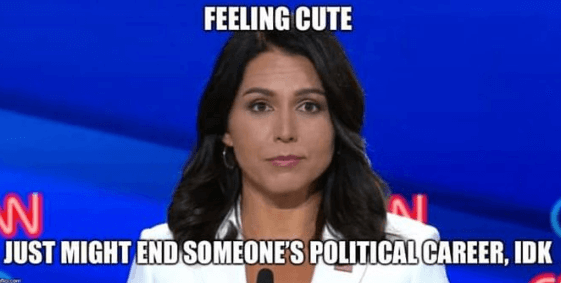[guest post by Dana]
President Trump isn’t letting up on the trade issues with China. This morning he pushed back against critics about his *order* to American companies to look for other alternatives to China:
As he arrived in France for the annual meeting of the Group of 7 powers, Mr. Trump posted a message on Twitter citing the International Emergency Economic Powers Act of 1977, a law originally meant to enable a president to isolate criminal regimes, not sever economic ties with a major trading partner over a tariff dispute.
“For all of the Fake News Reporters that don’t have a clue as to what the law is relative to Presidential powers, China, etc., try looking at the Emergency Economic Powers Act of 1977,” Mr. Trump wrote. “Case closed!”
The president’s threat to all but cut off one of America’s most important trading relationships amid a so-far-unsuccessful trade war could disrupt a global economy already on the edge of recession while further unsettling companies in the United States that rely on China in their production of everything from clothing to smartphones.
Mr. Trump has often made drastic threats as a negotiating ploy to extract concessions, as when he vowed to close the border with Mexico or impose tariffs on its goods to compel action to halt illegal immigration. But if he were to follow through in this case, it would be the most significant break with China since President Richard M. Nixon’s diplomatic opening to Beijing in the early 1970s.
Even if it never comes to that and Mr. Trump ultimately backs down, the threat itself could still have a long-lasting impact on relations with China and perhaps embolden hard-liners in Beijing pressing President Xi Jinping to take a more confrontational approach to the United States.
Critics are warning about the misapplication of the law:
“Any invocation of the International Emergency Economic Powers Act in these circumstances and for these purposes would be an abuse,” said Daniel M. Price, who was an international economic adviser to President George W. Bush. “The act is intended to address extraordinary national security threats and true national emergencies, not fits of presidential pique.”
Not only have China’s leaders warned about escalating the trade war but American business owners have done so as well, citing large financial losses and losing their competitive edge if forced to pull out of China:
“It’s difficult to move out of China, and any time they are forced to do so by tariffs, this is a momentous act,” said Ker Gibbs, president of the American Chamber of Commerce in Shanghai. ”We are in no position to give up the China market — it’s too large, it’s too important.”
Business leaders said the result could be a flurry of fire sales at greatly reduced prices as companies from other countries snap up American business interests.
Peter Baum of Baum-Essex, a firm that makes products like umbrellas for Costco and cotton bags for Walmart, said he had already moved much of his manufacturing to factories in Vietnam and Cambodia over the last year because of Mr. Trump’s tariffs.
As the trade war shows up in American cash registers, stock markets and retirement account statements, American shoppers and retirees will grow angry, Mr. Baum said.
“Both Trump and Xi have backed themselves into such a corner that this will go on through the U.S. election,” he said. “These two guys don’t realize that this could cause a global depression, not recession.”
[Ed. Hmm, call me crazy, but shouldn’t a savvy, successful businessman like Trump already understand the very real consequences that American businesses would face if he tried to force them to leave China??]
In spite of Trump *ordering* American businesses to look for alternatives to China, aides say no order has actually been drawn up, but rather, it was Trump “signaling” to American businesses that they need to “start disentangling themselves from China on their own“…yikes.
Here is some background on the law itself, and its prior use:
As of March 1, presidents had declared 54 emergencies under the law, of which 29 were still active, according to the Congressional Research Service. Presidents have used it to target international terrorists, drug kingpins, human rights abusers, cyber attackers, illegal arms proliferators and multinational criminal organizations.
Presidents invoked the law when Iraq invaded Kuwait in 1990, when Serbia sent troops into Kosovo in 1998 and when Russia annexed Crimea in 2014. Among the countries targeted have been international outliers like North Korea, Sudan, Somalia, Yemen, Syria, Congo and Venezuela.
Using it in a trade dispute with a country like China would be a drastic departure. But Mr. Trump could make the argument that China constitutes a national security threat through the theft of intellectual property or its military buildup in the South China Sea.
The Trump administration previewed this view of Beijing in its national security strategy in 2017, which described China as a “revisionist power” that has “expanded its power at the expense of the sovereignty of others.”
As usual, there is a wide range of opinion on whether Trump’s attempted use of the law would fly in this case. Here are a few:
[E]ven if an unprecedented stretch of the law, some international trade lawyers said it was written broadly enough that Mr. Trump could prevail.
“The statute gives the president the right to do just about anything if he or she first declares that here’s a national security threat to the United States,” said Judith Alison Lee, a lawyer at Gibson Dunn in Washington. “It would be hugely disruptive but, technically speaking, I think the statute gives him that authority.”
William A. Reinsch, an international business scholar at the Center for Strategic and International Studies, said that he did not think the act would allow Mr. Trump to order American companies to leave China, but that he might be able to block future investments, freeze Chinese assets and exclude Chinese financial institutions from the United States financial system.
Given that Congress is currently in recess, there hasn’t been much of a response to Trump’s *order*. It will be especially interesting to see how free-market Republicans respond to Trump’s threat to essentially, intervene in the economy. And it will be interesting to see what the market does tomorrow when it opens. It’s not hard to guess…
And this observation from Andy Mok, a trade and geopolitics analyst in Bejing, captures not only a cultural difference between China and the U.S. but also one between President Trump and President Xi’s individual approaches to the situation:
“In negotiations, and especially in high-stakes negotiations, the side that reacts emotionally generally is the side that does not do well,” he said. “The U.S. side is approaching this from a more emotional side, while China is more calm and calculating.”
(Cross-posted at The Jury Talks Back.)
–Dana




